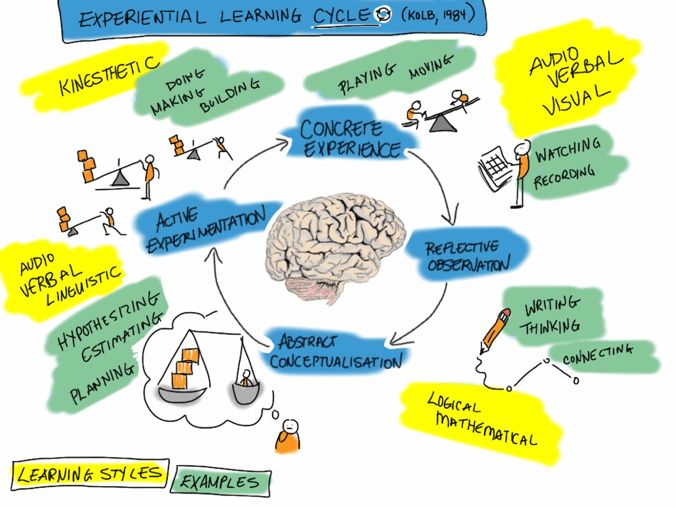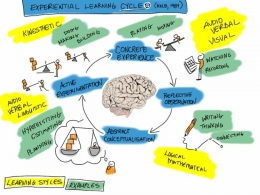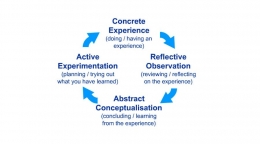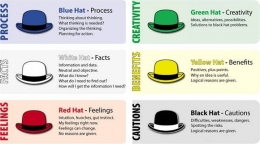" Learning is the process whereby knowledge is created through the transformation of experience" (Kolb, 1984, p. 38)
Who is David Kolb?
David Kolb is an American psychologist and educational theorist who is focused on the experiential learning style. He was born in 1939 and earned his Ph.D. in social psychology at Harvard University.
Kolb's Experiential Learning
Experiential learning means that learning that involves experience. David Kolb first established this learning style model in 1984. His theory was influenced by John Dewey, Jean Piaget, and Kur Lewin. In Kolb's theory, learning follows the four-stage cycle of grasping and transforming experience. Completion of all four stages allows the transformation of experience to knowledge.
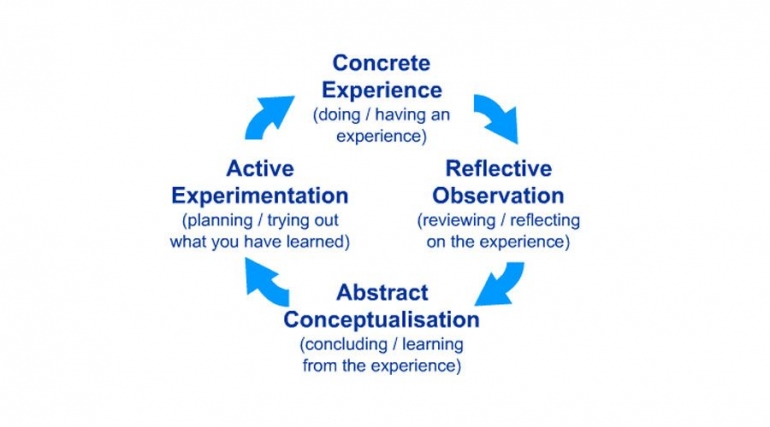
4 stages of Kolb's Experiential Learning:
- Concrete Experience (CE); the starting point of the cycle, where an individual encounters a new situation or new experience. In this stage, each learner engages in an activity or task. Kolb believed that the key to learning is involvement.
- Reflective Observation (RO); this stage is where an individual actively thinks about the new experience. The learner review or step back to reflect on the task. This stage allows communication to ask questions and identify the outcome of the experience.
- Abstract Conceptualization (AC); the next stage is the cycle to conclude the experience using familiar ideas and possible theories. This stage generates new ideas or changes to current abstract ideas that the learners have learned from the previous experience.
- Active Experimentation (AE); this stage is the testing stage, where the learner applies their ideas and lessons from their experience to the world around them. They will be able to predict, analyze, and make plans for the future and the cycle starts all over again.
Kolb's learning theory is cyclical, someone can enter the process at any stage of the cycle but usually begin with the concrete experience. One stage is dependent on other stages. However, the learning should be completed entirely to ensure effective learning.
Kolb's Learning Style Model:




